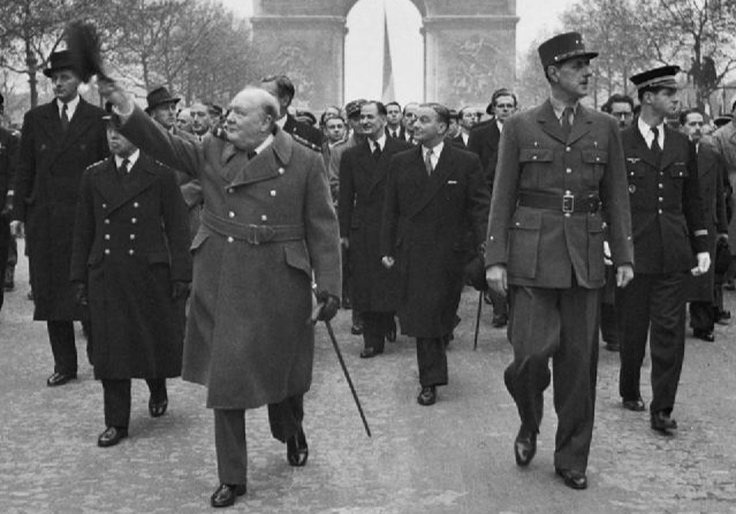When it comes to politics, historical comparisons aren't always fair.
On the one hand, our tendency to remember only great leaders can make such comparisons useless. After all, everyone looks underwhelming next to Abraham Lincoln—just ask Stephen A. Douglas.
On the other hand, there's something illustrative about these comparisons. Because even controlling for Lincoln-level leaders, looking back reminds us that contemporary denizens of Washington, D.C., lack both the intellectual heft and practical wisdom of their predecessors.
In The Statesman as Thinker: Portraits of Greatness, Courage, and Moderation, Daniel J. Mahoney shows us what we're missing. Mahoney, professor emeritus of political science at Assumption University and a senior fellow at the RealClear Foundation, blends biography and political philosophy to explain precisely what makes great leaders great.
Fortunately, Mahoney does not use his subjects to create an unattainable standard for today's leaders—far from it. By tracing the practical mix of classical and Christian virtues that made history's greatest men, Mahoney shows how statesmanlike greatness is still attainable today. Hardly a narrative of decline, The Statesman as Thinker is a reminder of what men can achieve.
The book begins with an introductory essay on "Statesmanship as Human Excellence." In it, Mahoney argues that the true statesman is committed to political liberty and sees himself as the guardian of a political community. Statesmanship requires not just greatness, which can lead to tyranny, but "the full range of intellectual and moral virtues" found in Christianity and classical philosophy.
Mahoney develops his argument through sketches of seven "magnanimous statesmen." It will come as no surprise that George Washington, Lincoln, and Winston Churchill all feature in this pantheon. But he also includes Edmund Burke and Alexis de Tocqueville, two figures remembered more for their political philosophy than leadership.
The book's strongest chapters focus on French president Charles de Gaulle and Czech dissident Václav Havel, two individuals who are equal parts statesman and thinker. Mahoney has written extensively about de Gaulle throughout his career, and he clearly sees the général as the ideal statesman. Readers will delight in reading about the larger-than-life Havel's revolutionary career and philosophical writings, which deserve more recognition than they get.
Mahoney falters when writing about American presidents. His discussion of Washington veers too much into the abstract and is largely a recapitulation of secondary literature. The book's Lincoln chapter has some fine moments, but is marred by digressions on contemporary "cancel culture," which seem like they belong in a different book.
At first, these sketches seem to comprise the standard account of modernity's pitfalls. Things started going downhill with Machiavelli and worsened as modern social science replaced classical virtue and Christian piety with moral relativism and nihilistic power politics. Mahoney appears to engage in this kind of critique, blaming "mediocre historians and critics" and other "professional enemies of the very idea of human greatness" for promulgating a culture that can't envision a life beyond mediocrity.
But Mahoney is careful to speak in terms of modern aims, not modern possibilities. He understands that human greatness is an immutable part of human nature—something that, to paraphrase the Roman poet Horace, will keep coming back no matter how much you drive it out with a pitchfork. In other words, we are just as capable of achieving greatness as Roman senators or the Founding Fathers. We simply don't imagine greatness as a possibility, and certainly don't see politics as conducive to greatness.
Even the book's structure speaks to the enduring possibility of virtuousness. Consider how Mahoney subtly alters the history of political philosophy as traditionally given by conservative political scientists. Rather than beginning with Plato and the Greek exhortation of contemplative life, he begins with Cicero and the life of the philosopher-statesman.
After Cicero, Mahoney speaks exclusively of statesmen readers will likely recognize and certainly find accessible. Three are from the English-speaking world; three are from the 20th century. And all of them are modern.
Crucially, Mahoney extols these modern statesmen as modern statesmen. Too often, conservative scholars attempt to redeem modern figures by claiming them as secret practitioners of ancient virtue. Not so Mahoney. He shows how Burke attained statesmanlike virtue while extolling the bourgeois virtues of commercial liberal democracy. He acknowledges that the neopagan Churchill got Europe through its darkest hour by invoking the greatness of "Christian civilization."
Nor does Mahoney fault these men for their personal vices. His admiration of Havel's wisdom and leadership is not marred by the Czech president's libertine sexual behavior. Indeed, Mahoney notes that "political greatness is not coextensive with infallibility or perfect judgment." Just as classical virtue can exist in modernity, so can political greatness be found in imperfect men.
This argument is practical as well as philosophical. If we lack great leaders because we have forgotten about greatness, then studying the deeds of statesmen will help "open ourselves to human excellence" in defiance of our modern impulses. But we will be more likely to contemplate greatness in figures who seem accessible to us—whether because of their personal flaws or distinctly modern virtues.
Even though Mahoney shows the possibility of virtuous leadership, a revival of statesmanship may still seem unlikely. But it's hardly far-fetched. After all, Americans love to argue about whether or not a given politician is suited for office. We're already comfortable claiming only certain people are fit for leadership—we just have more anemic criteria. Books like The Statesman as Thinker can inspire us to seek out leaders who are truly great, not just "presidential."
The Statesman as Thinker: Portraits of Greatness, Courage, and Moderation
by Daniel J. Mahoney
Encounter Books, 232 pp., $30.99
